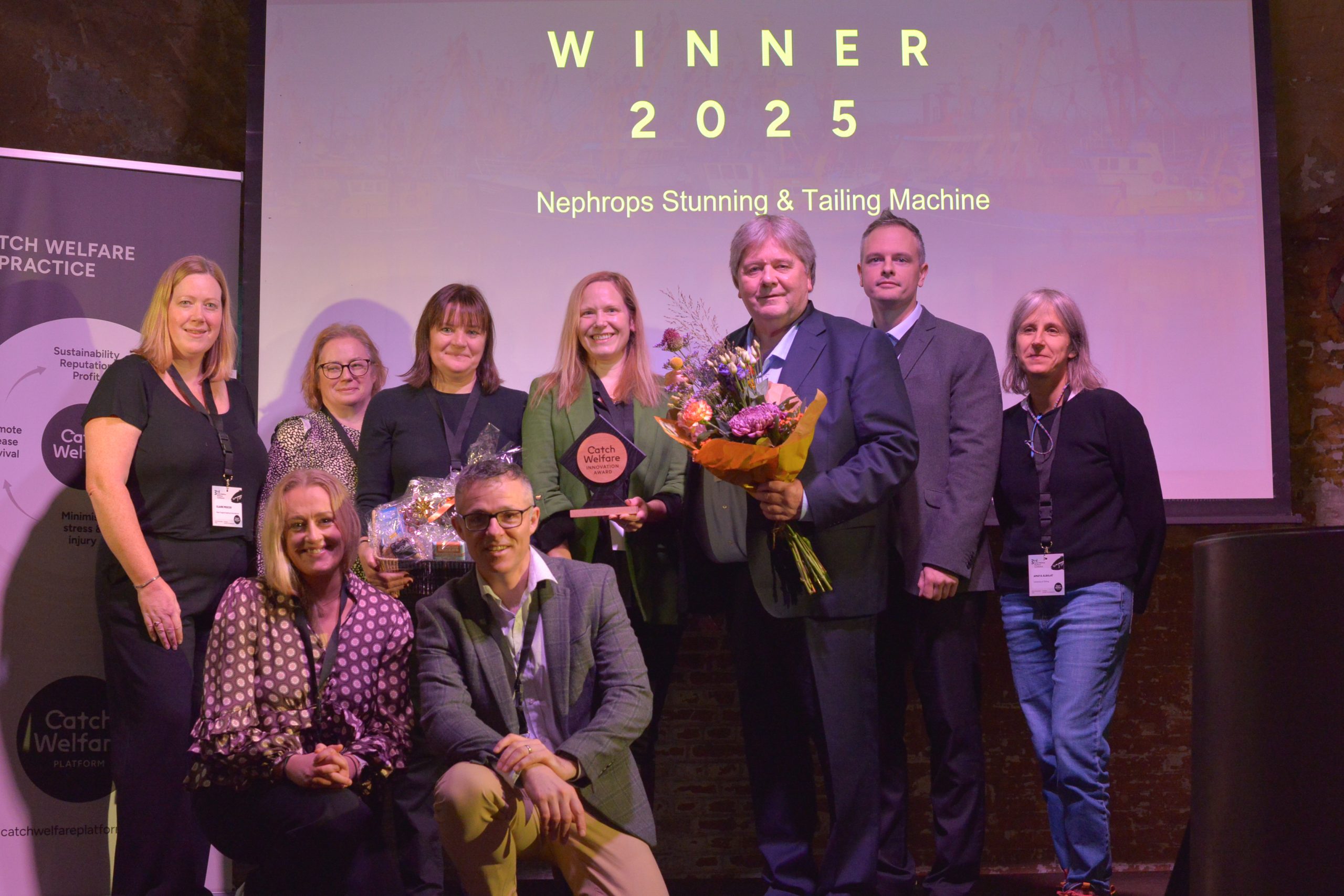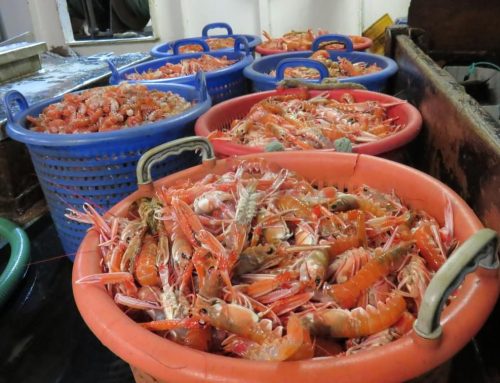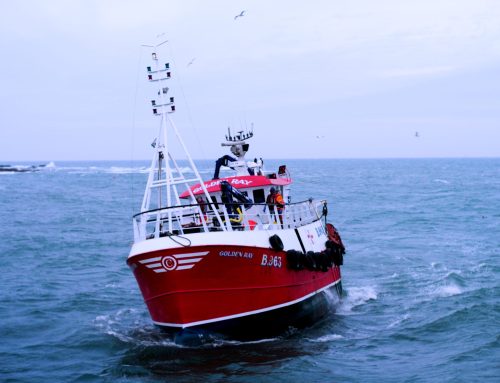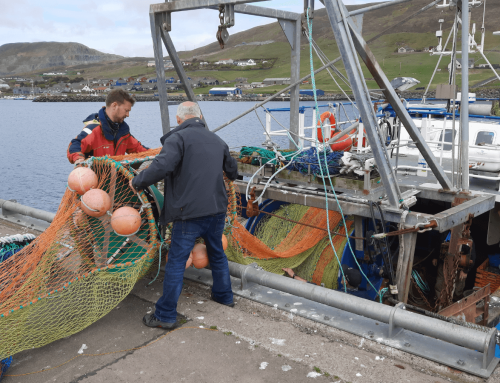We are thrilled that our innovative Nephrops machine has been awarded the first ever Catch Welfare Innovation Award by the Catch Welfare Platform in IJmuiden, the Netherlands. Announced today (Wednesday, 19 November) at the platform’s annual conference, the award comes in recognition of the pioneering machine’s potential in terms of catch welfare impact, novelty and socio-economic benefit to fishing communities.
Led by Fisheries Innovation & Sustainability, alongside a unique coalition of partners spanning technologists and supply chain wide seafood business, the project’s automatic stunning and tailing machine holds game changing promise in terms of improved animal welfare and reduced crew workloads onboard vessels across one of the UK’s most important fisheries.
Signposting the collaborative efforts underpinning the project and congratulating the companies and industry groups involved, FIS Executive Director, Kara Brydson says, ”We’re delighted with this recognition of the hard work of our industry partners to meet new animal welfare requirements head on. Successful innovation is as much about people as it is about machinery, and this group of fishermen, processors, retailers and of course the technical experts at Optimar have worked together to create a machine that can withstand everything a fishing vessel can throw at it.
“This project is proof that precompetitive collaboration – by the seafood industry for the seafood industry – truly works. It is much better to work together to create a solution that works for us as an industry, rather than have so-called solutions pushed upon us at the last minute. That is the ethos of FIS – who knows better about what’s safe and practical than the catchers and processors themselves?”
Nephrops are typically live-tailed at sea by hand on deck. Offering better handling and greater efficiency, our machine automatically stuns and tails the catch – reducing workloads, and offering a more humane alternative.
Successfully tested onboard the prawn trawler the Golden Ray by skipper Darren McClements, the sea credentials of the machine were demonstrated in May. Now in our next phase, work is underway to further develop the machine to a full capacity, automated system and economically assess the pioneering tech to support investment decisions and practical adoption of the technology.
Brydson explains, “Our machine will improve welfare practices, create a better working environment for crews and drive operational efficiencies, ultimately creating business and community resilience in the valuable scampi market. However, even once the machine is finalised for sale, we’re still at the beginning of the story.
“FIS is commissioning an economic analysis to help make the business case for investing in the machine. FIS believes that early adopters of novel technology should be supported, either financially or through positive regulations. We’ll work with those early adopters to understand what additional support is needed to ensure that all fishing communities can be ready to meet new rules on animal welfare.”
The pioneering efforts underpinning the Nephrops machine came as a proactive supply chain response to improve labour conditions and animal welfare in the fishery, bringing benefits to the entire sector. Matched by FIS and its industry partners, the project’s first phase received funding under the UK Seafood Fund’s Fisheries and Seafood Scheme.
The project recently secured funding from Northern Ireland’s Department of Agriculture, Environment and Rural Affairs (DAERA) for its second phase. Awarded under the Marine Environment & Fisheries Fund, the grant will improve the prototype machine, which will undergo a next phase of sea trials in Spring 2026.
Partners involved in the project include the Anglo Northern Ireland Fish Producers’ Organisation (ANIFPO), the Northern Ireland Fish Producers’ Organisation (NIFPO), Scottish White Fish Producers’ Association (SWFPA), Associated Seafoods, Shrimp Welfare Project, Kilkeel Seafoods, Whitby Seafoods, Young’s Seafood, Macduff Shellfish, M&S, Sainsbury’s, Seafish, University of Stirling, and The Fishmongers’ Company.






